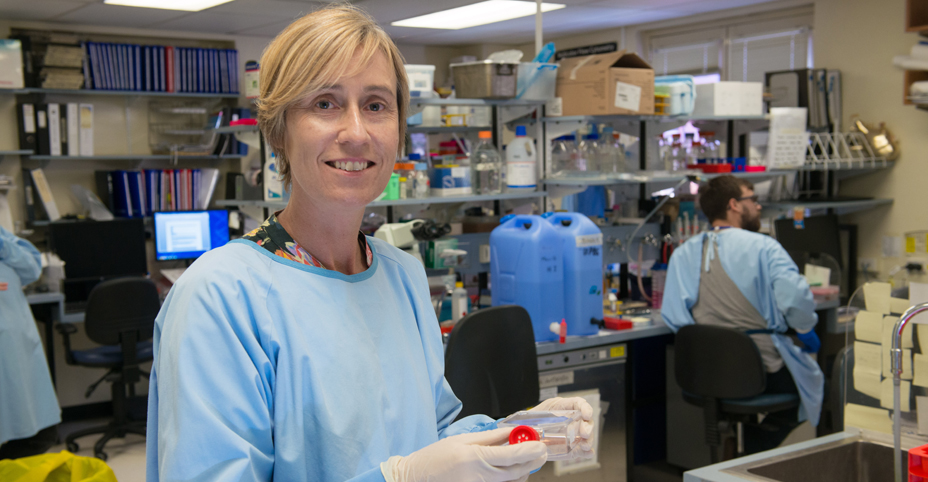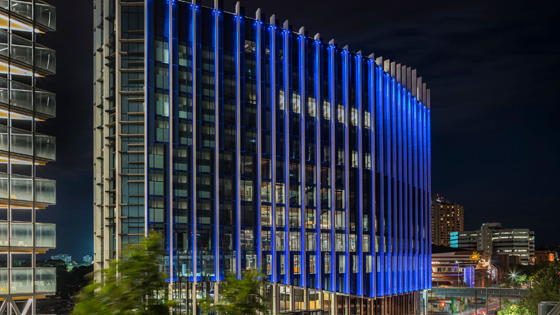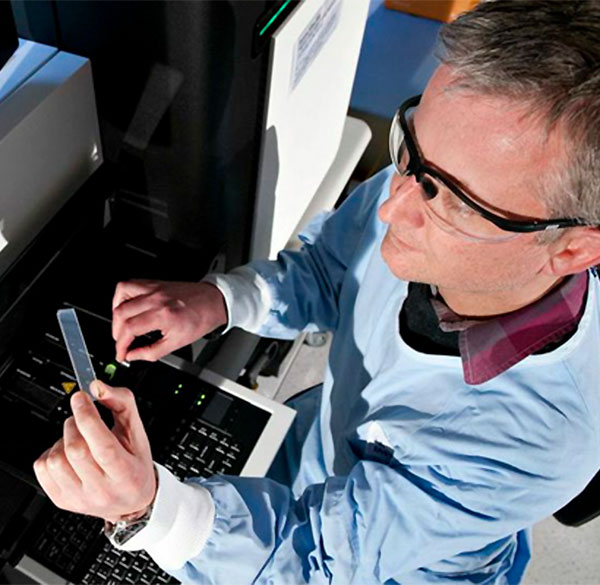
Associate Professor Claudine Bonder, Head, Vascular Biology and Cell Trafficking Laboratory, Centre for Cancer Biology, SA Pathology and University of South Australia.
Innovative and exciting research, led by Associate Professor Claudine Bonder, has the potential to raise the survival rate for highly aggressive breast cancer patients by starving cancer cells of the blood supply they need to grow and spread.
In Australia, every day approximately 40 people will be diagnosed with breast cancer and nine people will die. With advances in modern medicine, a patient’s survival rate is 98% if the cancer in the breast tissue tumour is less than one inch across. However, this figure drops to only 16% once the cancer has spread beyond the immediate region of the breast.
In order to attract a blood supply for the oxygen and nutrients they need, cancer cells can either send out chemical signals to draw blood vessels (angiogenesis) or build their own blood structures to create their own supply (vasculogenic mimicry).
“Without a blood supply, solid cancers can only grow to about 1mm cubed before they need more nutrients and oxygen,” says Assoc Prof Bonder.
“At this size, these cancers may be surgically removed and the patient has a good chance at successful treatment and survival.”
Until recently it was thought that cancer cells could only use angiogenesis to attract normal endothelial lined blood vessels in order to get their blood supply. A number of hopeful treatments were developed to target the endothelial cells that form the inner lining of blood vessels (angiogenesis). However this therapy has proven to not work for tumours that grow faster and spread more easily like triple negative breast cancer.
With the discovery that cancer cells can actually create their own blood supply (vasculogenic mimicry), Assoc Prof Bonder and her team are on to a very promising lead to starve these cancers of all forms of blood supply within breast cancer.
“From our studies – as well as others - we know that about 30% of the blood supply to cancer cells in breast cancer is due to this process of vasculogenic mimicry, the same is holding true for melanoma.
“We believe that some blood hormones are unexpectedly controlling factors which allow cancer cells to promote both angiogenesis and vasculogenic mimicry to build their blood supply, and we have created some good antibodies that are proving effective in blocking this function in lab models.”
“On average it takes well over 10 years to turn a discovery from the lab bench into an effective therapy for patients, but with our knowledge of cancer and blood vessels we have the potential to fast-track this process.
“We are excited by the results we are seeing in the lab. However, to progress this research faster towards clinical trials we need to undertake further testing which requires additional funding.
“Ultimately this research could lead to a new therapy for breast cancer patients.
To support potentially life-saving, important cancer research at UniSA, please visit: donate.unisa.edu.au/donate-to-cancer-research

When you give today, 100% of your donation will go directly to the researchers - with no admin fees or hidden costs.
The University of South Australia (UniSA) is committed to tackling one of our most challenging diseases – cancer – by establishing the largest cohort of cancer researchers ever assembled in South Australia. Every day our experts are getting one-step closer to saving more lives as well as improving the quality of life for cancer survivors. But they need your help.
